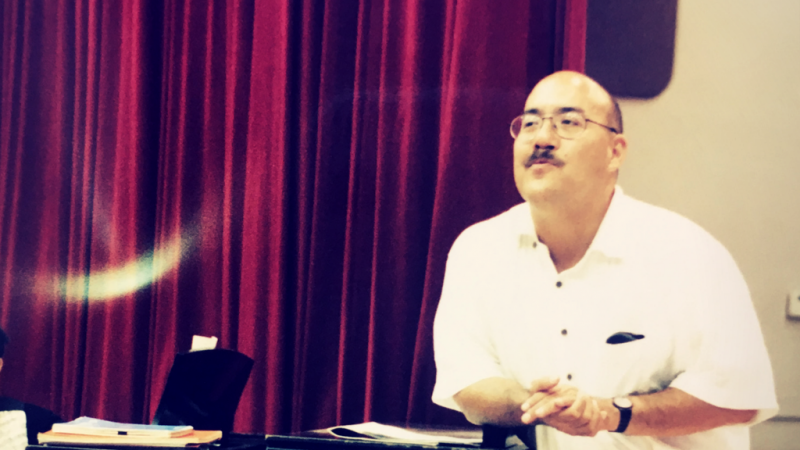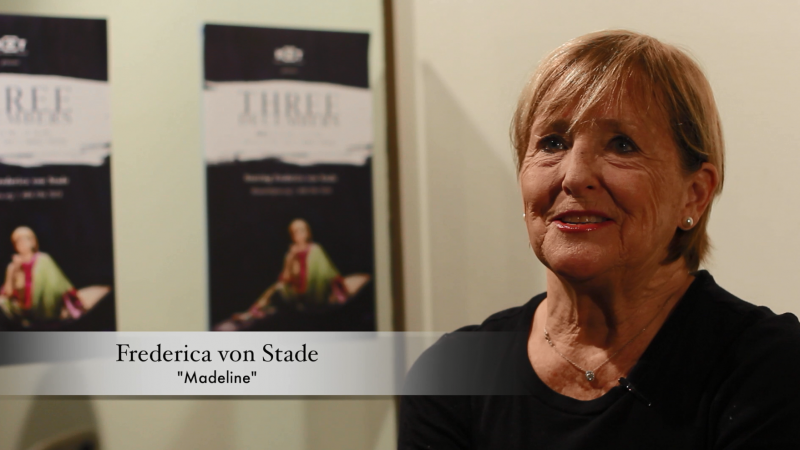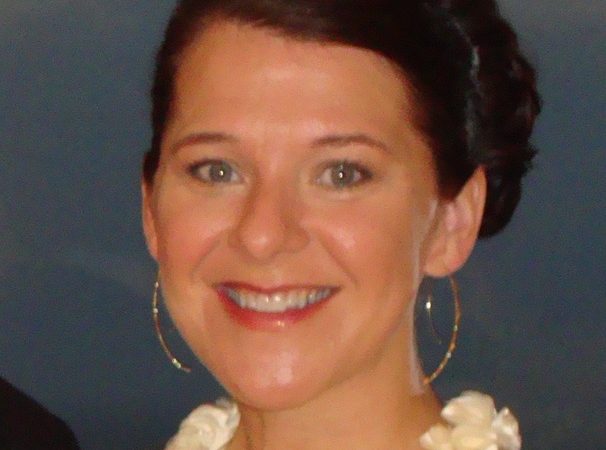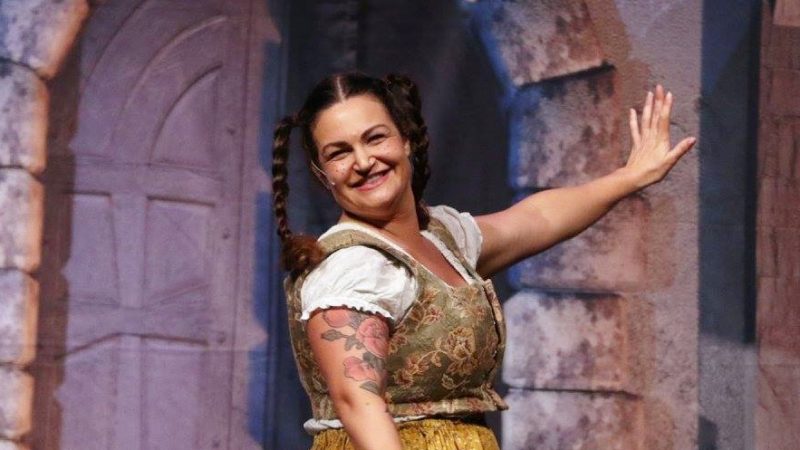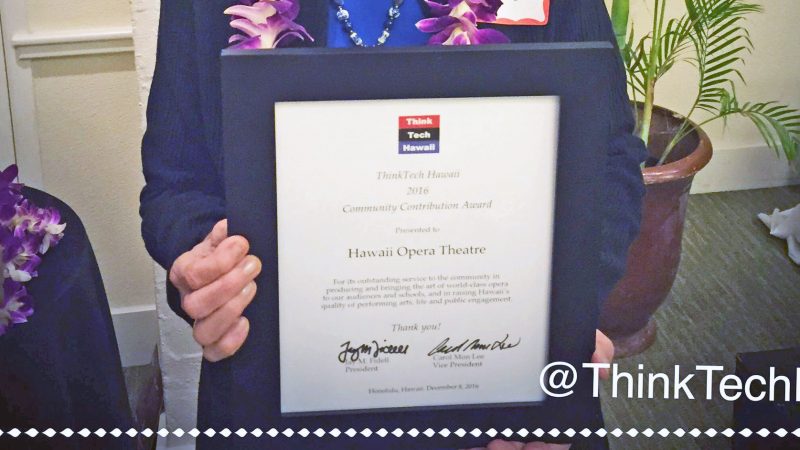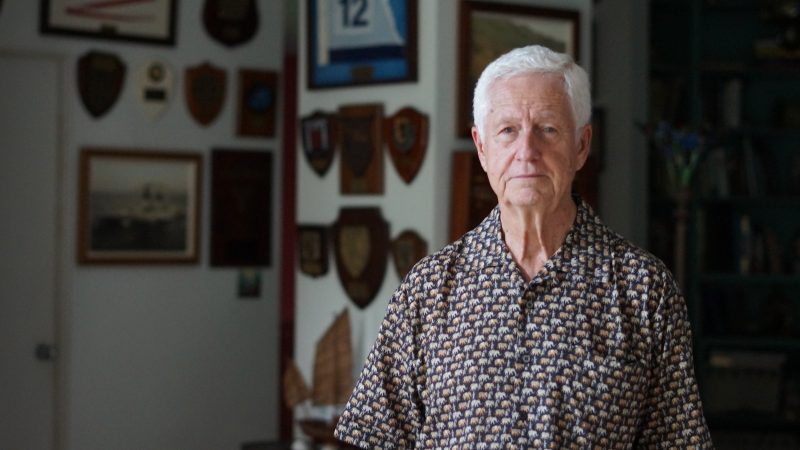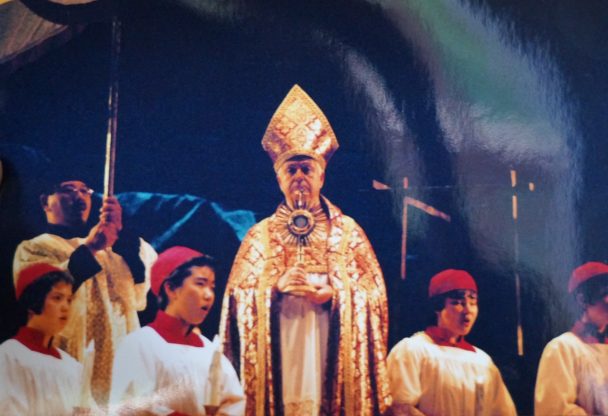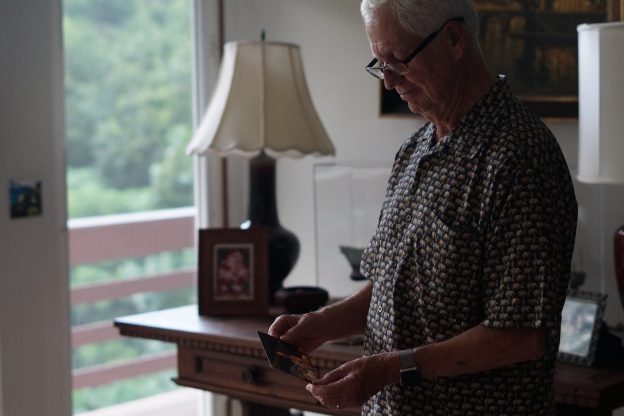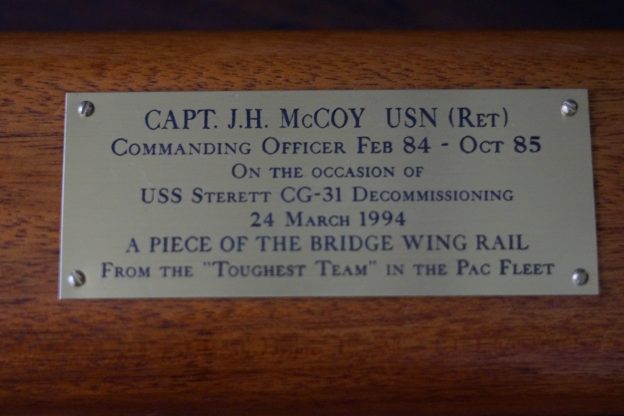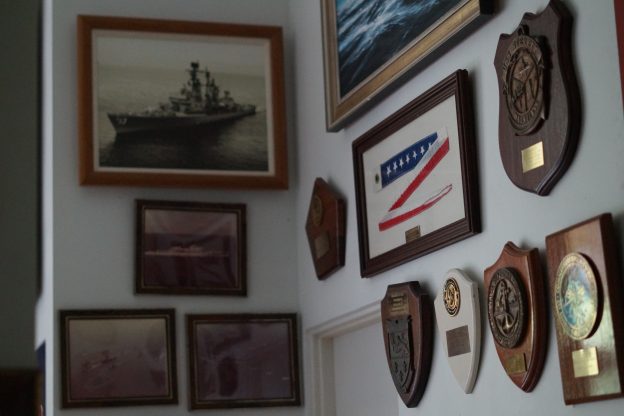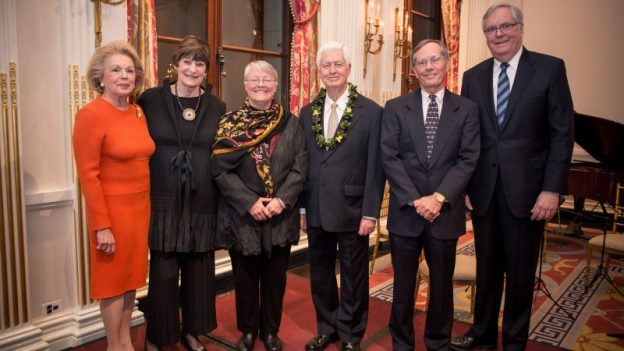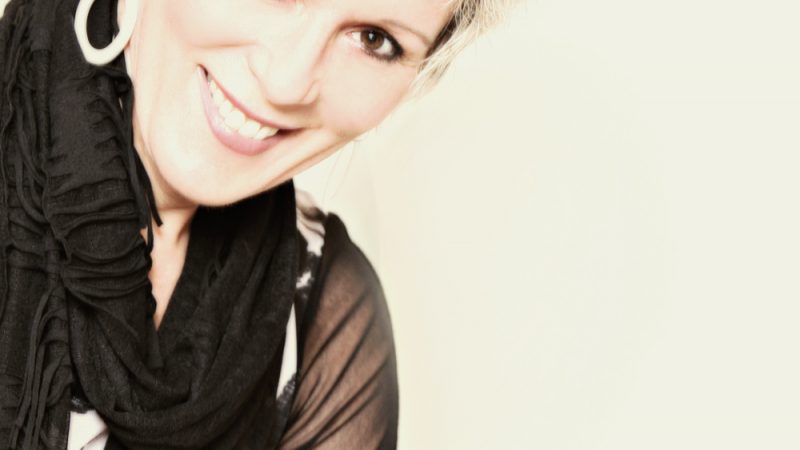A true love for music has guided Henry Akina, Hawaii Opera Theatre’s first Hawaiian director, through more than 120 operas over a 30-year career.
Offenbach’s The Tales of Hoffmann will be the last opera that Henry directs for HOT, before retiring from his role as Artistic Director, which he has held for 20 years. The production will be performed on April 21, 23, and 25 at the Blaisdell Concert Hall.
In a 2002 HOT concert program Henry wrote: “The opera is but one art form where we can go beyond everyday life to look at some of its mythologies and gain insight into the lives of other characters, and thus into our own.”
With this in mind, the Tales of Henry will look back on Henry’s life and career.
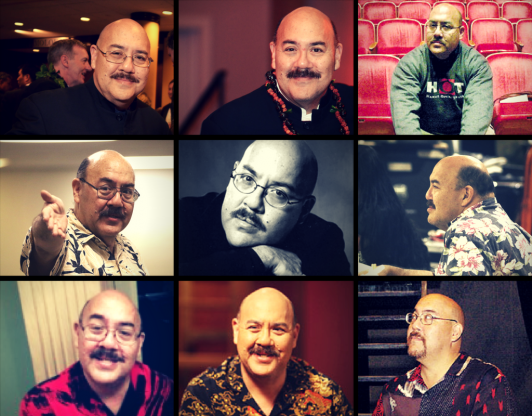
Epilogue
Henry’s grandfather worked at the Metropolitan Opera, and his parents regularly listened to opera broadcasts. He saw his first opera, Bizet’s Carmen, at HOT when he was only six years old.
“There was a lot of opera lore in our family, but I thought it was just ‘lore,’” Henry said, “and I didn’t really think of it as a career until much later.”
Henry’s parents, who were both medical professionals, were surprised when he turned away from medicine and law in favor of an arts education. It wasn’t opera that he pursued in primary school, however, it was theater. As a boy, Henry dreamed of being an actor.
But when Henry saw Puccini’s Turandot at HOT as a teenager, he realized something.
“It really taught me that theater was something that we could do through music, as well,” he said.
And so the ‘Muse of Music’ grabbed Henry and began to influence his life, as the ‘Muse of Poetry’ guided and protected Hoffmann in The Tales of Hoffmann.
Hoffmann’s infatuation for the prima donna Stella could have distracted him from his true love of poetry. In a similar sense, theater was only a stepping stone along Henry’s path toward musical creation.
And just as Hoffmann’s three great failed romances paved the way for poetic greatness, three of Henry’s life experiences have factored into his musical inspiration.
Act I: Germany
After receiving his Bachelor of Arts degree Magna cum Laude in Psychology and Drama from Tufts University in 1977, Henry made a decision that would change his life. He decided to move halfway around the world to Germany to attend the Free University of Berlin Graduate Program, where he could continue to study theater science by working as an assistant director.
“I got coffee, and I did all these other things,” Henry explained in a 2015 PBS interview, “but at that time I was an assistant for language particularly, because they needed someone who spoke English.”
Henry was on track for a successful theater career. But the Muse of Music was about to change everything.
“Opera as a career was pure happenstance,” Henry told a reporter during a 1998 MidWeek interview. “I was working as an intern in spoken theater, but they canceled the performance. But there was a performance of Faust with Barbara Daniels, and I was invited to work on that.”
The hands-on experience of working as a director’s assistant on an opera revitalized his interest in the art form that he was introduced to as a child. He started buying himself opera tickets and assisting on more opera productions. Henry still considered theater his main focus until he saw a production of Verdi’s Don Carlo at the Deutsche Oper Berlin.
“It was a kind of opera that I hadn’t seen before,” Henry said. “It was abstract and delightful. I can only tell you that it made me feel a lot. It took me to a place where I had never been before. Theater hadn’t really done that for me.”
And thus a love for opera was born. Music, Henry found, could heighten the emotion of theater.
He transitioned from working on theatrical sets to musical sets and learned the differences between staging actors and singers. The director, Henry told PBS, is there to “make things live for the singer.”
In the early 1980s, a class of opera singers and a pianist heard saw some of the pieces that Henry had directed and reached out to him with a proposition. They were interested in starting a company and wanted him to be its director.
Founding An Opera Company
Henry was surprised. The fact that they chose him out of any other director in the area puzzles him to this day, he said. But the choice didn’t come as a surprise to others.
“He had a commitment to the arts, he was very good at choosing the repertoire and finding the right artists, and people recognized that,” said Brynmor Llewelyn Jones, a conductor who was working in Berlin at the time. “When you get somebody like that to work with, you don’t ask many questions.” Henry and Brynmor co-founded the Berlin Chamber Opera in 1981, and with nothing more than eager singers, a pianist, and some stage lights, the group got to work.
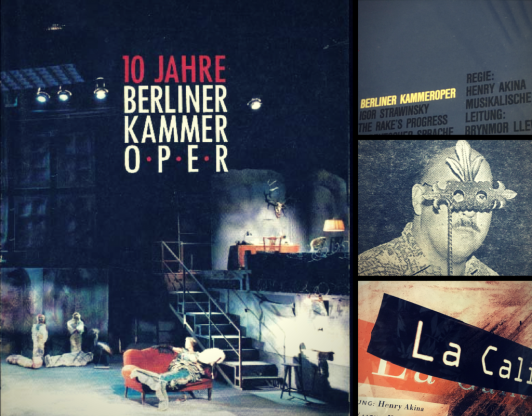
The company developed a reputation for its alternative opera productions, ranging from early Baroque repertoire to contemporary works. The company received state funding only a couple years in, and its productions started selling out in the third year.
Henry directed over 50 opera productions in the following 15 years, including four world premieres. He attributed the company’s success at that time to the motivation of its people, which Brynmor described as “250 percent.”
“They were people who wanted to work,” Henry said. “That gives you a whole different kind of energy.”
Positive reviews poured in over the years. One local reporter called Henry “undeniably impressive” as a director in a 1993 review. But the company faced tough times, as well. In 1984, costume material caught fire onstage during a Mozart production. The venue had to be evacuated, but no one was injured. And in 1986, a turntable that was integral to a production malfunctioned onstage, forcing singers to improvise before the audience.
“There was enough balance and enough good stuff with that bad that kept it going, though,” Henry said.
Around that same time, Henry began teaching acting and performance skills to opera singers at the Conservatory of the Arts in West Berlin. He also started accepting offers to direct operas across Europe. But the Berlin Chamber Opera remained his priority.
“Berlin [Chamber Opera] was his baby,” Elsa Grima, Henry’s first Assistant Director, said. Henry met Elsa while he was directing Busoni’s Turandot at the Opéra National de Lyon in France and he invited her to Berlin to work with him. At the time, Elsa wasn’t confident about her directing abilities, but Henry saw potential in her.
“When I first met him I was just a beginner, and I thought I was so bad,” she said. “He believed in me before I believed in myself.”
Elsa worked with Henry on four productions at the Berlin Chamber Opera. She described his leadership as relaxed and fun, and she said his trust in her was “entire.” Henry was not only Elsa’s mentor, but a friend who she could spend time with outside of rehearsals.
“You don’t learn directing. You get inspired,” she said. Elsa worked with Henry for years before accepting a position as Stage Manager at the Paris Opera. She has also worked with Henry at Hawaii Opera Theatre as Stage Manager several times over the years, including last season’s production of A Midsummer Night’s Dream.
Responding to an Invitation
By the 1990s, Henry had lived in Germany longer than he had lived in Hawaii. But he thought about Hawaii often.
During one Berlin Chamber Opera production, Henry had directed a singer to dance with the audience in Monteverdi’s Il ballo delle ingrate. As he watched the opera from the audience’s perspective for the first time, the scene reminded him of something familiar. “It was kind of like a Luau,” Henry said.
He had been keeping up with opera in Hawaii and was impressed by many productions, but until a HOT board member reached out to him about the search for a new Director in 1996, he hadn’t considered returning.
“They put out a call into the wilderness, and I was ready to come home,” Henry told MidWeek. The invitation came at a time where Henry was already considering looking for something new. After the Berlin Wall fell in 1989, there was no expectation for funding for the Berlin Chamber Opera. Without funding, the company couldn’t go on.
“We both saw the writing on the wall,” Brynmor said. “The reaction here was one of understanding, but also sadness.”
Henry’s time in Germany gave him a love of opera, taught him about leading an opera company, and encouraged him to instruct others. He would take each of those lessons with him as he started his new journey as Director back in his island home.
Act II: Hawaii
The HOT opera program, “Aria,” has always featured designs relating to the production being presented. But in 1996, there was a special edition of Aria.
On the cover was Henry, in Aloha attire, sitting in a chair with a warm smile on his face. The only accompanying text proudly pronounced “Henry G. Akina takes the reins of HOT.” Henry was back in Hawaii, after more than two decades in Germany, to serve as the first local-born manager of HOT.
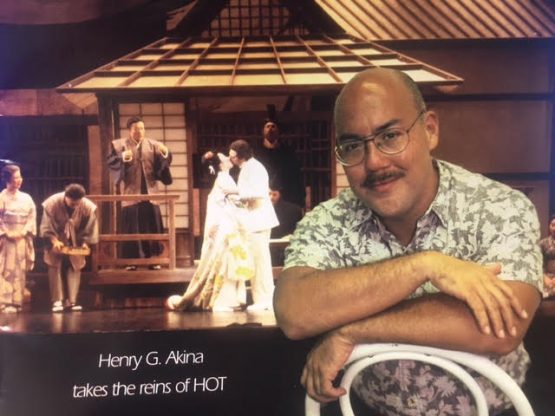
“To be invited to manage this company, in the town of my birth, is a unique blessing, one that I approach with a sense of challenge and responsibility.” Henry said in the 1996 Aria. It was the first of nearly 30 Director’s Notes he would write for HOT audiences over the years.
When he returned back to Hawaii, Henry said he felt welcomed. He remembered someone telling him he hadn’t forgotten his local roots.
“Henry was at home in Hawaii,” Elsa Grima, who had worked with Henry in both Germany and Hawaii, said. “He was in his element.”
HOT was special to Henry. The company presented the first opera performances he had ever seen. And he had plenty of plans for its next steps.
Henry laid out his goals for HOT in the 1996 Aria. They included producing more operatic activities throughout the year, expanding the education program, and balancing the repertoire between classics and new works. He felt that HOT could be a “cultural lighthouse in the community,” he said.
Henry explained in a 1998 interview with Midweek that he felt HOT was built on Puccini, but there was much more to draw upon from within the art form’s 400-year history. “I wanted to make musical changes and production changes… I wanted to change everything,” Henry said.
The scheduled 1997 and 1998 season productions, which included the Hawaii debut of Romeo and Juliet and Macbeth, shed some light on the direction that he wanted to take the company. Henry wanted to relate to local audiences, and he wanted to show them literature they might already be familiar with in a different way.
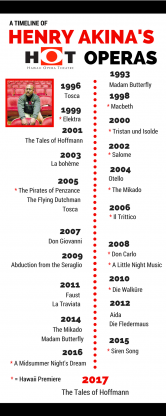 “I wanted opera more for the people,” Henry said. “I think that every audience is different and every community is different.”
“I wanted opera more for the people,” Henry said. “I think that every audience is different and every community is different.”
Since then, Henry has staged several acclaimed productions like Madam Butterfly, Tosca, The Mikado, and A Midsummer Night’s Dream. Of the 28 productions he has directed, almost half were Hawaii premiers.
Many of Henry’s aspirations for HOT were realized. The company now produces operas throughout the year, he expanded and founded new programs within the company’s educational outreach, and he certainly introduced new repertoire.
In a 2001 program, Henry appeared confident as he declared: “Yes there is opera in Hawaii, and yes, opera thrives here. Come celebrate with us.”
It was the program for that year’s production of Offenbach’s The Tales of Hoffmann – the same production that would be his last with HOT.
Staging the Last Production
Henry didn’t know that The Tales of Hoffmann would be his last production with the company when he picked this season’s repertoire. He didn’t pick it for any sentimental reason. But the production speaks to him, and his artistic direction shines within it.
“I’ll try to bring as much joy and as much happiness to the production as possible, and I’ll let the music of the opera shine through,” Henry said.
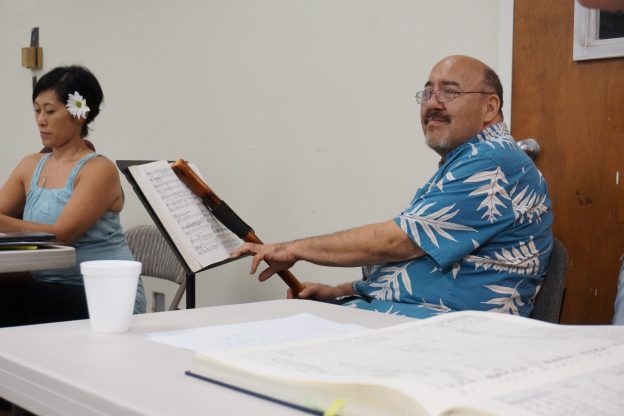
This is the third time Henry has directed the opera. The last time he directed it was in 2001. Both productions utilized Peter Dean Beck’s set designs, but aside from that similarity, Henry said the current production is “a fully new opera.”
Eric Fennell plays the lead role of Hoffmann in this production. It’s his fifth time singing Hoffmann’s arias, but he said that each time is very different. And Henry’s direction will give this a new spin, Eric said.
“Henry is a wonderful resource,” He said. “When you work with someone who is as experienced as Henry is, I just try to listen as much as I can.”
Henry told Eric during one rehearsal that Hoffmann should not be the hero of the opera. That stuck with Eric and changed the way he performed the role.
“I want artists to walk away [from HOT productions] with a positive experience that hopefully is enlightening,” Henry said.
Audiences who watch the opera will also be able to see Henry’s influence in the staging of certain characters, according to HOT Artistic Administrator Barett Hoover, who has worked with Henry for about a decade.
Barett points to Henry’s use of the local, volunteer HOT chorus. Henry stages the chorus in a way that helps tell the story, Barett said. “Henry makes them more than just background figures,” Barett said.
The relationship Henry has with the chorus has also impressed Olivia Vote, who debuts with HOT in this production as the Muse.
“Everyone has such a respect and awareness of Henry’s contribution,” Olivia said. “There is no other place where the chorus will come to rehearsals five nights a week. But they do it here, because that’s what he expects. They want to work with him, and that’s the kind of community he’s created.”
Throughout the company, from the chorus to the board, donors, and staff, people have felt Henry’s impact.
Bringing “World-Class” to Hawaii
As Henry reflects on his impact on HOT, he does so humbly.
“I think I’ve had a positive impact, but I don’t know,” he said. “The people here are the judge of that.”
Many people and organizations have already made their judgments in favor, however. In 2015, the Hawaii Arts Alliance recognized Henry with its Alfred Preis Honor for his commitment to arts and arts education in Hawaii, and the state legislature awarded Henry a certificate for his lifelong service to the arts last year.
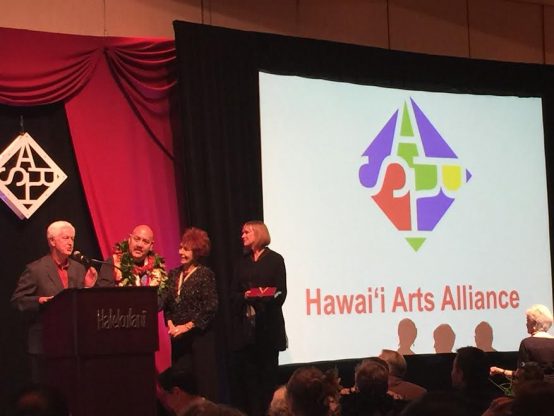
Additionally, HOT Board President Jim McCoy said he feels that Henry is the reason that HOT produces world-class opera. Barett said he feels the same way.
“He looked at more of a world-wide perspective and saw us in the grand opera landscape,” He said. “I think increasing the artistic standards of the company was probably his biggest legacy.”
But Henry has also left behind a living legacy – one that will impact the world long after he’s left the company. The Mae Z. Orvis Opera Studio, Henry said, is his most proud accomplishment with HOT.
Act III: Legacy
In the mid-1990s, the Hawaii representative from the Arthur and Mae Orvis Foundation was speaking with local arts organizations to try to find ideas for initiatives to fund. The representative reached out to Henry and HOT’s education team. Henry had an idea for a HOT “studio” that could do more for its community, and the funding presented an opportunity to bring his idea to fruition.
“I was envisioning a professional company of Hawaiian people that were talented operatically,” Henry said.
Henry, HOT Director of Education Erik Haines, and HOT Head of Music Beebe Freitas, assembled to plan the direction of the studio. The three determined that the main goal would be to provide opportunities and connections for young local singers to interact with professionals in the opera world. The prospect was granted funding and was named the Mae Z. Orvis Opera Studio.
“I think that the opera studio is one of my great accomplishments,” Henry said.
Because the studio was fully funded, participants who auditioned could take part free of charge. Studio members ranged from college age to slightly older. It quickly gained popularity, with around 10 to 20 members every year since its inception.
“Henry saw that there was all this raw talent here in Hawaii, but the singers needed more skills,” said Malia Ka’ai-Barrett, who was a member of the original studio class. “So the studio created a way to foster some skills.”
When Malia started with the studio, she was a perfect example of someone who had the talent, but needed further instruction to open more doors in the industry. She had studied music, taken part in several choirs, and had sung in front of plenty of audiences. But like many singers, she had yet to master all of the elements of performance.
“[The studio] is not just about singing, it’s about performing,” Erik said. “That includes what do you do physically in terms of making the sound and what do you in terms of creating the world of what you are singing, whether it’s a Broadway piece or an art song or an aria.”
In the first few years of the studio, Henry served as an expert who could offer studio members feedback in their staging, acting, auditioning, and performance.
“We want to create a full performance,” Henry told PBS in a 2015 interview, “and I’ve usually had very collaborative relationships with singers to try and get that out of them.”
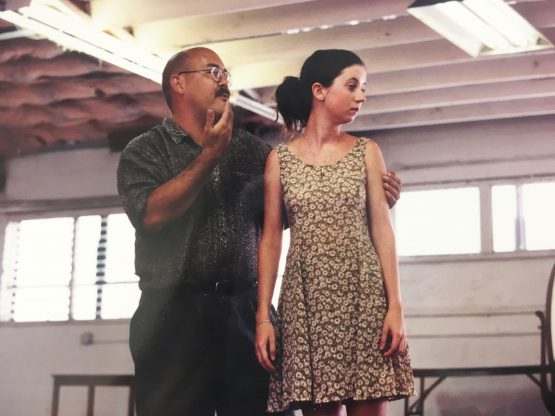
As the studio was able to bring in more clinicians to instruct members over the years – from pianists to directors to dancers – Henry stopped instructing classes. Renowned opera experts, such as conductor and pianist Mark Morash, conductor Tim Shaindlin, and singers Jake and Jill Gardner, have taken his place. The studio has also been visited by well known names in opera, such as Frederica von Stade and Sylvia McNair.
The studio usually brings in anywhere from two to six clinicians for master classes each year. Malia says she is consciously aware of how much she improves after each.
“I’m always thankful for what HOT has done, and it really has been because of Henry having the thought and the willingness to commit to it,” she said.
But the studio has also provided benefits for HOT. Although studio members don’t have to pay any fees, they are expected to participate in the chorus for at least one of the season’s opera productions. Erik said this helps provide a stable core for the HOT chorus and introduces new, young members. The company has also gained enough confidence in some of the studio members to present them as live performers at some of its most prestigious events, such as the annual opera ball.
And though Henry is retiring, the studio will remain a priority for HOT. Erik said that in the coming years he plans to expand the singers’ meeting schedules to include more workshops where they can listen to, evaluate, and assist each other in moving forward.
“The studio has been important for me personally, but I think for so many, in helping turn us from singers who enjoy singing into singing performers and singing actors,” Malia said. “And that’s really what opera is about.”
Many of the studio’s members have taken the instruction and networking a step further and translated it into a career.
Becoming Professionals
Most of the professional opera singers who have come out of Hawaii in the last few decades, in fact, can trace their roots back to the HOT studio, Malia said. And Henry was a big inspiration to some of the singers who made it big.
“I think for island kids – local kids – in particular, it’s really scary to go outside of Hawaii,” Malia said. “It was inspiring to have somebody who had gone away, had success, and then came home telling us, ‘you’re more than capable of doing this, but you need some skills, so let’s get you ready.’”
Trying to get started in an opera career took more than just talent, Malia and others learned. A singer needed to have established a polished repertoire of pieces they could perform in an audition, they needed to know how to audition, they needed to be able to perform, and they needed head shots. But above all else, they needed to have the guts to put themselves out there. And the fact that Henry had faith in the community that he grew up in made a difference, Malia said.
One young baritone singer who had the talent and the guts was Quinn Kelsey. He was a member of the original studio class, along with Malia.
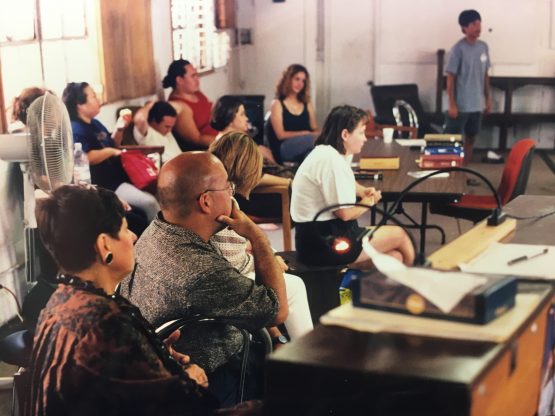
“Quinn was this guy who was really of international stature, who was really quite good,” Henry remembered.
Quinn took what he learned in the studio and ran with it. With support from HOT, he started an opera career and quickly gained notoriety. Since then he has sung around the world, including in roles for the Metropolitan Opera, English National Opera, and Opéra National de Paris. In 2016, he returned home to sing the title role of Rigoletto in Concert with HOT.
“The Orvis Opera Studio, in essence, allowed me a huge leg up as I finished college and began to move into the ever growing pool of young artists searching for the direction in which to take the next step in their budding careers,” Quinn said. “I gained so much insight into an operatic career, as well as honing the many tools I would later use to hitting the ground running as a full-fledged artist. I don’t know that I would be as successful as I am today if not for all that the Orvis Opera Studio gave me all those years ago.”
Other former studio singers who have now made a career out of opera include baritone Jordan Shanahan and tenor Jeremy Blossey. Several others have gone on to pursue music master’s degrees or work in musical theatre. Malia now serves as the General Manager of the Hawaii Youth Opera Chorus.
Henry is happy with all of the outcomes, he said, as long as he was able to contribute to helping people learn more about opera.
“I would always like them to be world stars,” he said, “but I would also be happy with them staying here in Hawaii.”
Epilogue
Henry’s retirement has come as a surprise to many, including himself.
His decision, he said, is in response to a recent diagnosis with a progressive neurological disorder, which he feels will soon make it difficult to direct.
“I’m leaving the company in good hands,” Henry said. “I hope that in the future, even more people see opera as a form of theatre that really is emotional.”
Henry has certainly done his part in exposing others to opera. And his experiences in theater and music have touched many in Hawaii and all over the world. He brought opera premieres to Germany and Hawaii, he gave young directors the confidence to stage their own productions, and he helped transform raw talent in Hawaii into a company of professional performers. But Henry said he’s not done.
“The fat lady hasn’t sung yet,” Henry said with his signature laugh. “There’s more to come. That’s up to the world.”
Henry will be named Artistic Director Emeritus upon leaving HOT. The Henry Akina fund has also been created in his honor, and donations will provide support for at least one production each year or for visiting directors.
After directing his last production, Offenbach’s The Tales of Hoffmann, HOT’s singers sent him off with hoards of leis and a performance of Queen Lili’uokalani’s song “Aloha ‘oe.”
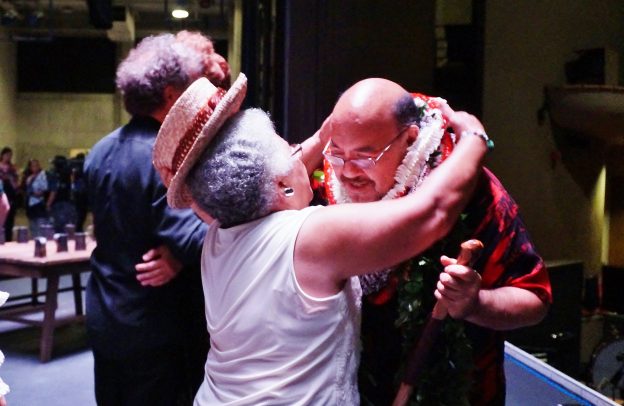
Not long before, in the last act of The Tales of Hoffmann, Hoffmann had realized that his three great failed loves all resembled the primadonna Stella. When Stella returned to the bar where he was drinking, he had drank too much to even realize she was there. With no one left to distract Hoffmann, the angelic Muse of Poetry presented herself and proclaimed that Hoffmann could finally fulfill his destiny as a poet.
“From the embers of your heart we kindle your genius,” she sang.
For Henry, the great tales of his life – from Germany to his living legacy in Hawaii – have also left embers in his heart. They all resemble his original fondness for theatre, but it was the Muse of Music that truly kindled his genius.
“I’ve always found inspiration in music,” Henry said. “I will always look to music as a source of possible inspiration.”
By: Allison Kronberg
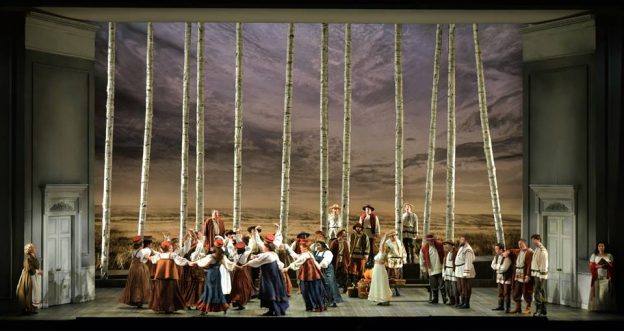

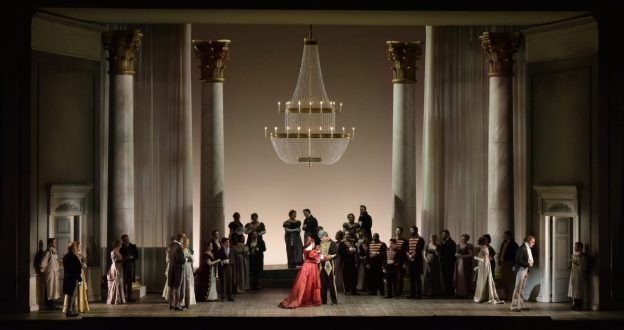
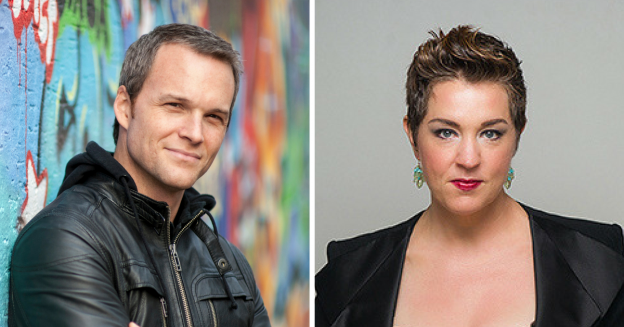
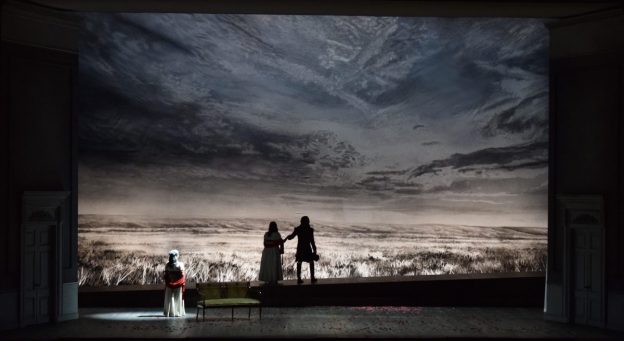
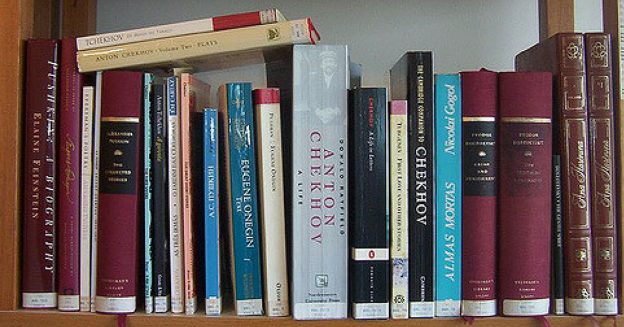
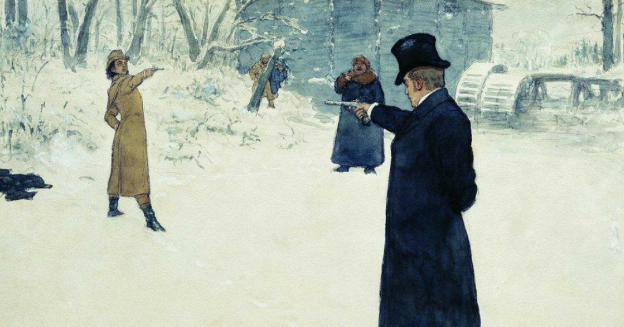
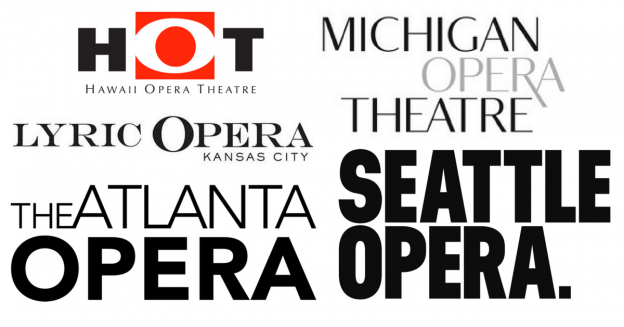
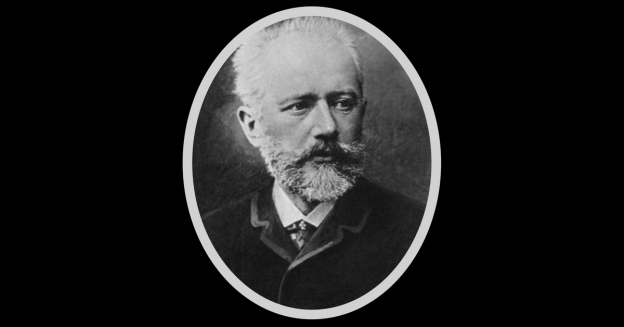
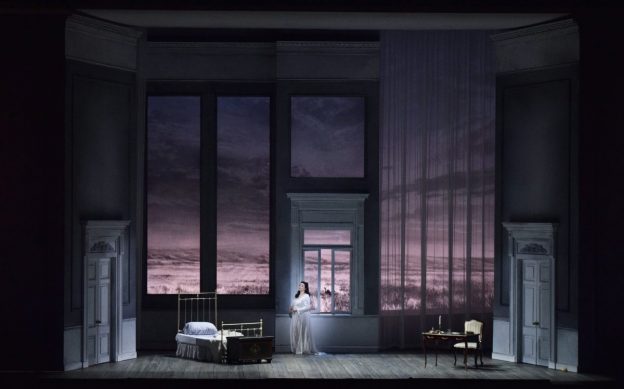

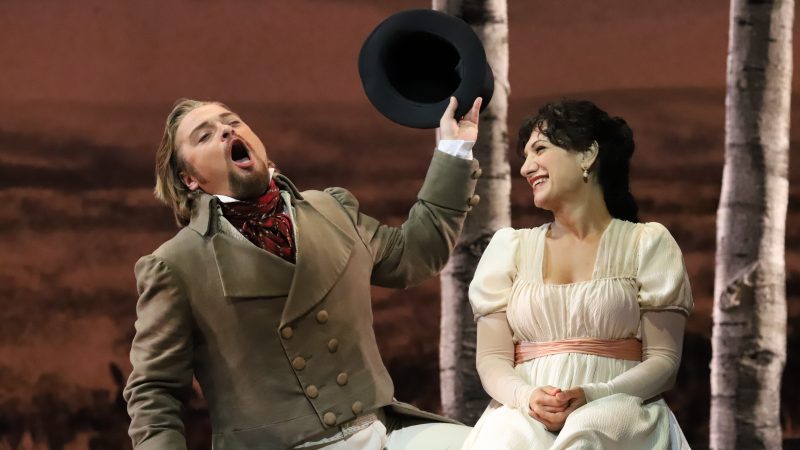
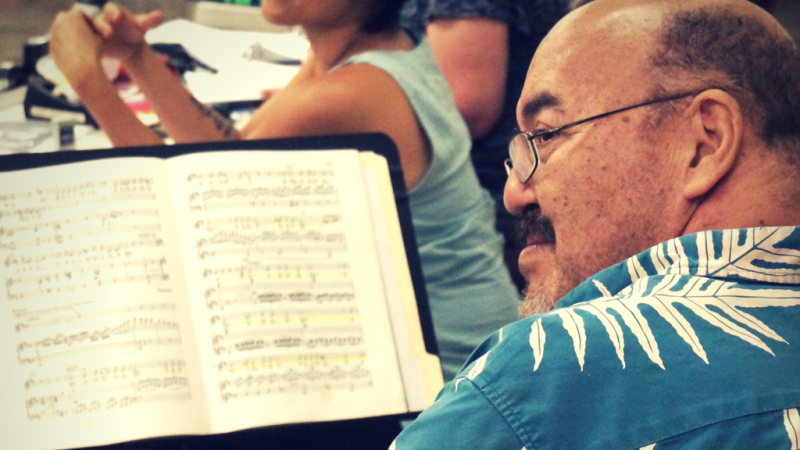



 “I wanted opera more for the people,” Henry said. “I think that every audience is different and every community is different.”
“I wanted opera more for the people,” Henry said. “I think that every audience is different and every community is different.”




